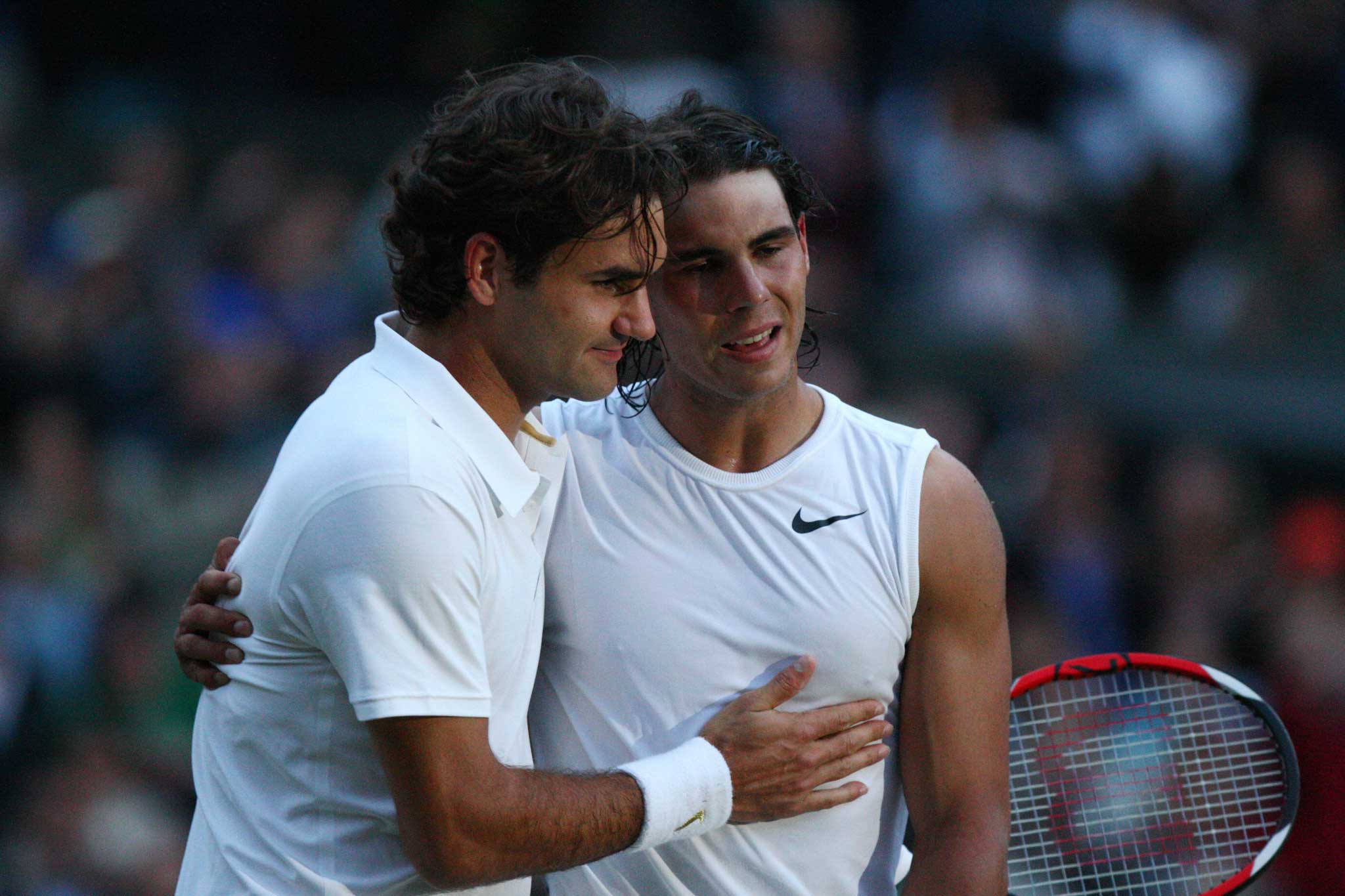Tennis world still awaiting follow up to Roger Federer and Rafael Nadal's classic 2008 final

Your support helps us to tell the story
From reproductive rights to climate change to Big Tech, The Independent is on the ground when the story is developing. Whether it's investigating the financials of Elon Musk's pro-Trump PAC or producing our latest documentary, 'The A Word', which shines a light on the American women fighting for reproductive rights, we know how important it is to parse out the facts from the messaging.
At such a critical moment in US history, we need reporters on the ground. Your donation allows us to keep sending journalists to speak to both sides of the story.
The Independent is trusted by Americans across the entire political spectrum. And unlike many other quality news outlets, we choose not to lock Americans out of our reporting and analysis with paywalls. We believe quality journalism should be available to everyone, paid for by those who can afford it.
Your support makes all the difference.Isner against Mahut was the longest and the most preposterous, and Murray versus Djokovic was the one that sparked wild celebrations from Southfields to Dunblane and far beyond.
But unmistakably the greatest men's tennis match at Wimbledon for decades was Roger Federer against Rafael Nadal in the 2008 final, and the frustration since that blockbuster is that we still await the sequel.
Their big day showdown had everything, with Nadal the king of clay tackling a man so masterful on grass he had won the last five Wimbledon titles.
On a stormy day in London, the showpiece match was firstly delayed, then twice interrupted by rain, and finished at 9.17pm in gathering gloom that for Federer was magnified by the bitter pill of defeat. The king of Centre Court had come from two sets down to force a decider that revolutionist Nadal took 9-7, earning his first Wimbledon title. When Federer flashed a final forehand into the net, men's grass-court tennis looked to have settled on a rivalry for the ages.
Nadal, the great baseliner, had gone close in the previous two years, losing two tight finals to Federer, yet his triumph proved to be the apogee of what was halted at a three-match series.
Twelve months later, Federer returned to land his sixth Wimbledon title, in the absence of the injured defending champion, and the Swiss matched Pete Sampras' haul of seven in 2012 by overwhelming Murray.
Nadal, in turn, was back in 2010 to beat Tomas Berdych in the final. Berdych had ousted Federer in the quarter-finals.
The wait for a reunion went on, yet in 2013 Federer and Nadal were seeded to meet in the last eight, and the prospect of either man losing before that stage looked negligible. Federer had reached 36 consecutive grand slam quarter-finals.
Steve Darcis and Sergiy Stakhovsky appeared less stumbling blocks and more cannon fodder, yet Belgian Darcis stunned Nadal and the tennis world with his first-round triumph, and two days later Federer was gone too.
"You guys hyped it up so much, me playing Rafa, and we're both out," Federer said afterwards. "So there's a letdown clearly."
With questions being asked more loudly than usual about whether his knees were up to competing on grass, Nadal said of his own loss: "The only thing I can say I can do is keep working hard and keep giving me chances about my game on this surface."
Make no mistake, Federer and Nadal are each well capable of making amends in title-winning fashion this year at Wimbledon. Nadal is fresh off winning the French Open for a ninth time.
Forget for a minute that Federer turns 33 in August. To him, that is not a factor, as he explained in Miami this year.
"I understand it's a quick-moving sport. You win a match, it's all good again. You lose a match, it's all bad," Federer said.
"The problem is everybody loses except one guy every week. You have to look at the overall case, what's been happening, what are the reasons for maybe not playing so well, or for playing well.
"You don't just forget how to play tennis. Age is just a number. It's nothing more, really. That's how I see it."
The rivalry is unrelenting away from the grass, where maybe they are fated never to meet again, but it has become remarkably one-sided.
Nadal has won his last five contests with Federer, the 28-year-old dropping just one set in the process.
Their head-to-head was expected to be tightly contested, yet a decade in and Nadal is 23-10 ahead. Such a statistic is difficult to marry to the frequently espoused theory that Federer is the greatest player the game has seen.
Stefan Edberg's presence as Federer's coach could be a telling factor in the coming weeks, with the Swede a two-time champion at the All England Club himself.
This could also be Federer's last realistic chance to land an eighth Wimbledon title, and is unmistakably an opportunity to prevent Nadal getting closer to his record of 17 career slams.
A ninth Roland Garros title for Nadal was a 14th major for the Spaniard. He plays down talk of going beyond Federer, but you bet that is the private target.
"Well, he's had 17 and I have had 14 grand slams, that's true," Nadal said. "But I'm not really worried. It's not a source of motivation for me. I'll follow my own path. Then when my career is over, we'll count.
"I don't really care that much about the records. I'll still play with a lot of intensity. I'll still be motivated. Then we'll see. Time will tell if I can have another record or not."
PA
Join our commenting forum
Join thought-provoking conversations, follow other Independent readers and see their replies
Comments